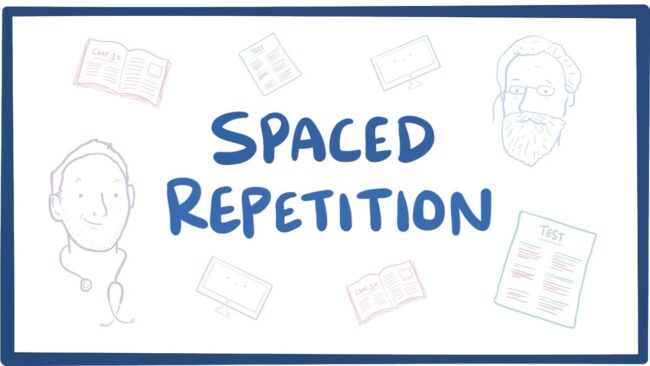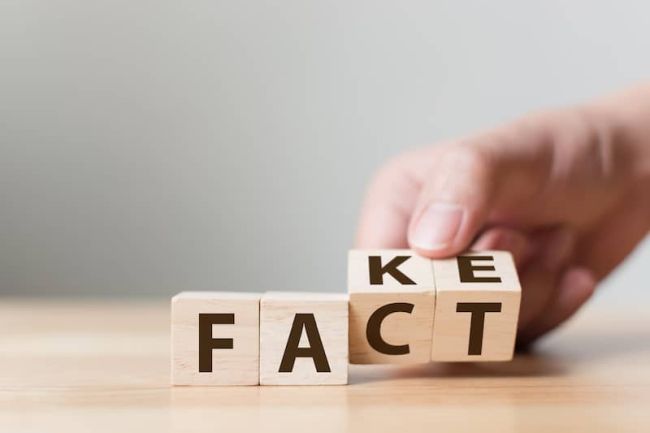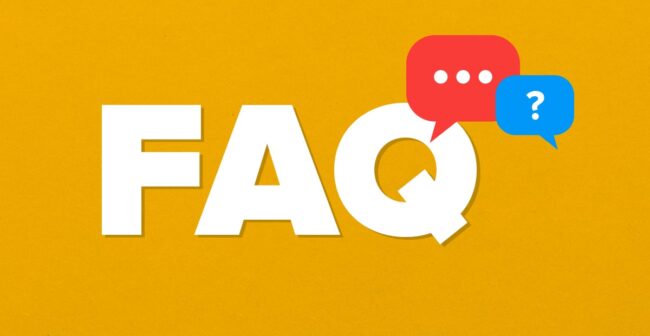In the realm of study techniques, few methods have garnered as much attention and acclaim as flashcards and spaced repetition. These tools, while simple in concept, have revolutionized the way many students approach their studies.
This article delves deep into the power of these techniques, shedding light on why they are so effective and how you can harness their potential.
Flashcards are small cards that display information on both sides. Typically, one side poses a question or presents a prompt, while the other side provides the answer or elaboration.
For instance, a flashcard for language learning might have the word “apple” on one side and the Spanish translation “manzana” on the other. A great way to modernize your studying with the use of online study tools is Gizmo!
Why Use Flashcards?

Flashcards leverage the principle of active recall. Instead of passively reading information, you’re actively trying to remember it. This process strengthens neural pathways, making it easier to retrieve the information later.
The Science Behind Active Recall
Active recall is the practice of actively stimulating memory during the learning process. Instead of rereading notes or listening to lectures multiple times, you test yourself, forcing your brain to retrieve the information.
Neural Connections and Memory
Every time you recall a piece of information, you reinforce the neural pathway associated with that knowledge. Think of it as treading a path through a forest. The more you walk it, the clearer and more established the path becomes.
Benefits Over Passive Review
Studies have shown that active recall, such as testing oneself with flashcards, is far more effective than passive review. It not only improves memory retention but also enhances understanding, as the brain has to process the information rather than merely recognize it.
Enter Spaced Repetition

While flashcards are powerful on their own, their efficacy is magnified when combined with spaced repetition.
Understanding Spaced Repetition
Spaced repetition is a study technique where information is reviewed at increasing intervals. Instead of cramming all at once, you review the material several times, spacing out your sessions as you become more familiar with the information.
The Forgetting Curve
Hermann Ebbinghaus, a 19th-century psychologist, introduced the concept of the forgetting curve. It illustrates how our memory of new information decays over time. However, every time we review that information, the curve becomes less steep, meaning we forget less over the same period. Spaced repetition leverages this by strategically reviewing just before you’re likely to forget.
Spaced Repetition Systems (SRS)
Modern technology has given rise to software that automates spaced repetition, making it easier than ever to implement.
How SRS Works
An SRS will prompt you to review a flashcard after a specific period. If you recall the information correctly, the interval before the next review increases. If you forget, the interval decreases. This dynamic adjustment ensures optimal memory retention.
Crafting Effective Flashcards

The power of flashcards and spaced repetition is contingent on the quality of the flashcards themselves.
Be Concise
Each flashcard should represent a single idea, fact, or concept. Avoid the temptation to overload them with information.
Use Visuals
Images, diagrams, and color-coding can enhance memory retention. They provide additional neural pathways, making the information more memorable.
Personalize Your Cards
Creating your own flashcards makes them more effective. The process of crafting the card is, in itself, a form of active learning.
Tips for Implementing Spaced Repetition

To maximize the benefits of spaced repetition, consider the following tips:
- Start Early: Don’t wait until the last minute. Begin your study sessions well in advance of any exam or test.
- Stay Consistent: Make it a daily habit. Even if it’s just for a few minutes, regular review is key.
- Trust the System: It might feel counterintuitive to review less frequently as you become more familiar with the material, but trust the science. Over-reviewing can be as detrimental as under-reviewing.
Everyday Applications
While the association between flashcards, spaced repetition, and academic study is strong, their utility extends far beyond the classroom.
| Application | Description |
| Language Learning | One of the most popular applications is in language acquisition. Vocabulary, grammar rules, and even idiomatic expressions can be effectively learned using this method. By consistently reviewing and testing oneself, language learners can achieve fluency faster than with traditional methods. |
| Professional Development | In professions that require constant updating of knowledge, such as medicine or law, spaced repetition can be invaluable. For instance, doctors can use flashcards to keep abreast of new medical procedures, drug interactions, or symptoms of emerging diseases. |
| Personal Growth | Whether it’s mastering a new hobby, remembering names and faces, or even learning to cook a variety of dishes, these techniques can be applied. The principles of active recall and spaced repetition can help in retaining any kind of information. |
Common Misconceptions

As with any popular method, there are misconceptions surrounding flashcards and spaced repetition.
“I Don’t Need to Review if I Know It”
Some believe that once they’ve mastered a topic, there’s no need for further review. However, the forgetting curve shows that without periodic reinforcement, even mastered information can fade.
“More is Always Better”
Cramming hundreds of flashcards in one session might feel productive, but it’s not the most efficient way to retain information. Short, consistent study sessions are more effective than marathon ones.
Challenges and Solutions
| Challenges | Solutions |
| Overwhelm with Volume | The sheer number of flashcards can sometimes be daunting. Solution? Break your study sessions into manageable chunks. Focus on a set number of cards per session. |
| Stagnation | Repeating the same cards can become monotonous. Keep things fresh by periodically updating your flashcards or incorporating multimedia elements. |
| Integration with Augmented Reality (AR) and Virtual Reality (VR) | With advancements in technology, the future looks promising for these study techniques. Imagine studying anatomy with 3D flashcards or learning history by virtually walking through historical events. The possibilities are endless. |
| Artificial Intelligence (AI) and Personalized Learning | AI can analyze a student’s performance and customize the spaced repetition intervals for optimal learning. This personalization can make the process even more efficient. |
FAQs

What Exactly Is Active Recall?
Active recall is a study technique where, instead of simply reviewing information, you actively test yourself to retrieve and remember it. This method strengthens the neural pathways associated with the information, making it easier to recall in the future.
Are Digital Flashcards as Effective as Physical Ones?
Both digital and physical flashcards can be effective. The choice often comes down to personal preference. Digital flashcards offer advantages like portability, multimedia integration, and automated spaced repetition systems. However, some people find the act of writing out physical cards helps reinforce memory.
How Often Should I Review My Flashcards for Optimal Retention?
The ideal frequency depends on the spaced repetition system you’re using. Initially, you might review a new card several times in one day. As you become more familiar with the information, the intervals between reviews will increase. Software like Anki can automate this process for you.
Can I Use Flashcards for Complex Subjects Like Advanced Mathematics or Philosophy?
Absolutely! While flashcards are often associated with rote memorization, they can be adapted for complex subjects. For instance, a flashcard might pose a problem or concept on one side and a solution or explanation on the other. The key is to break down complex ideas into digestible chunks.
I’ve Heard of The Forgetting Curve. How Does Spaced Repetition Combat This?
The forgetting curve illustrates how our memory of new information decays over time. Spaced repetition strategically combats this by scheduling reviews just before you’re likely to forget. Each review strengthens your memory, making the forgetting curve less steep with each repetition.
Are There Any Subjects or Topics Where Flashcards and Spaced Repetition Might Not Be Effective?
While flashcards and spaced repetition are versatile tools, they might not be ideal for subjects that require deep, holistic understanding without fragmentation. For instance, appreciating a piece of literature or understanding a complex narrative might be better achieved through comprehensive reading and discussion. However, even in these cases, flashcards can be used to remember key points, themes, or character details.
Conclusion

In the vast landscape of learning methodologies, flashcards and spaced repetition emerge as two of the most potent tools for memory retention and effective studying. Their simplicity, backed by the science of active recall and the forgetting curve, offers learners a pragmatic approach to mastering diverse subjects.
As we navigate the challenges of the information age, where knowledge is abundant but attention spans are limited, these techniques provide a beacon of hope. By integrating them into our study routines, we not only optimize our learning processes but also set ourselves up for long-term success. Whether you’re a student, a lifelong learner, or someone looking to pick up a new skill, embracing these methods can be a transformative step in your educational journey.
